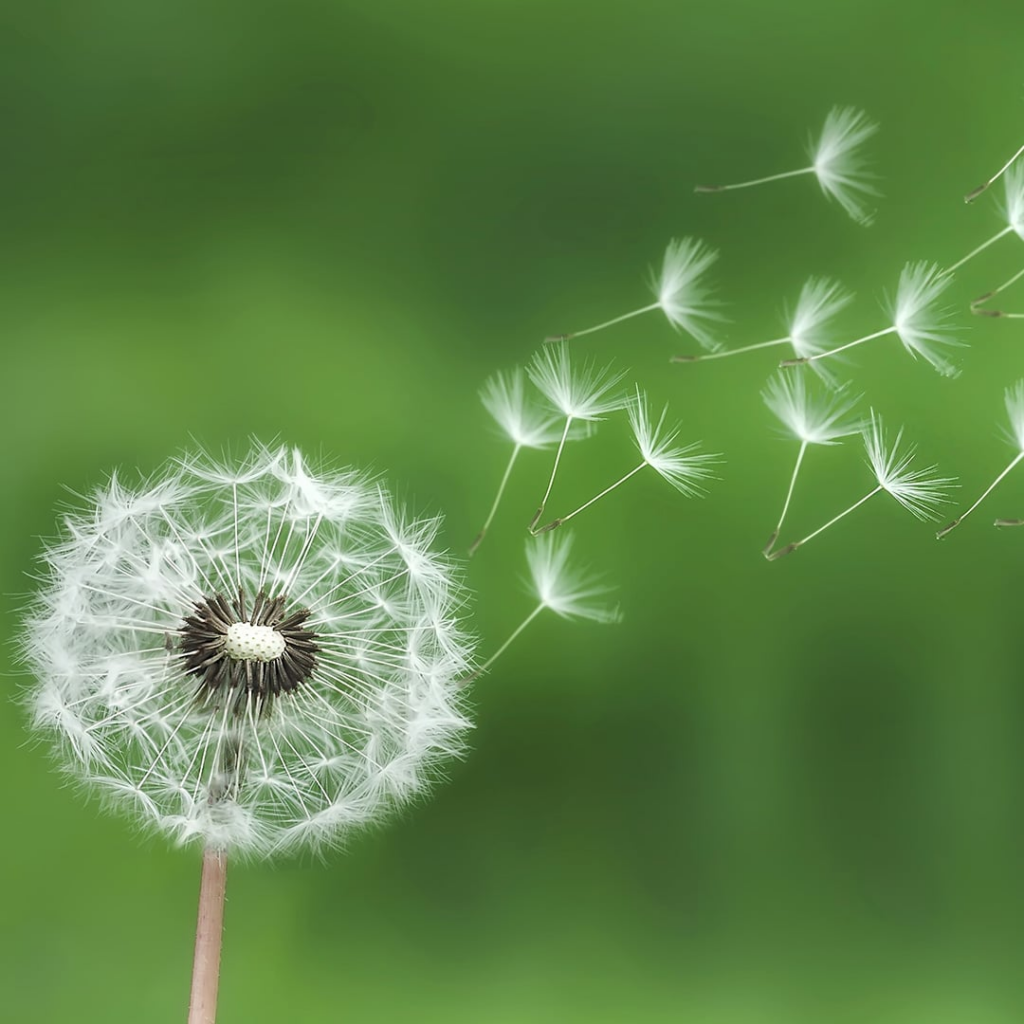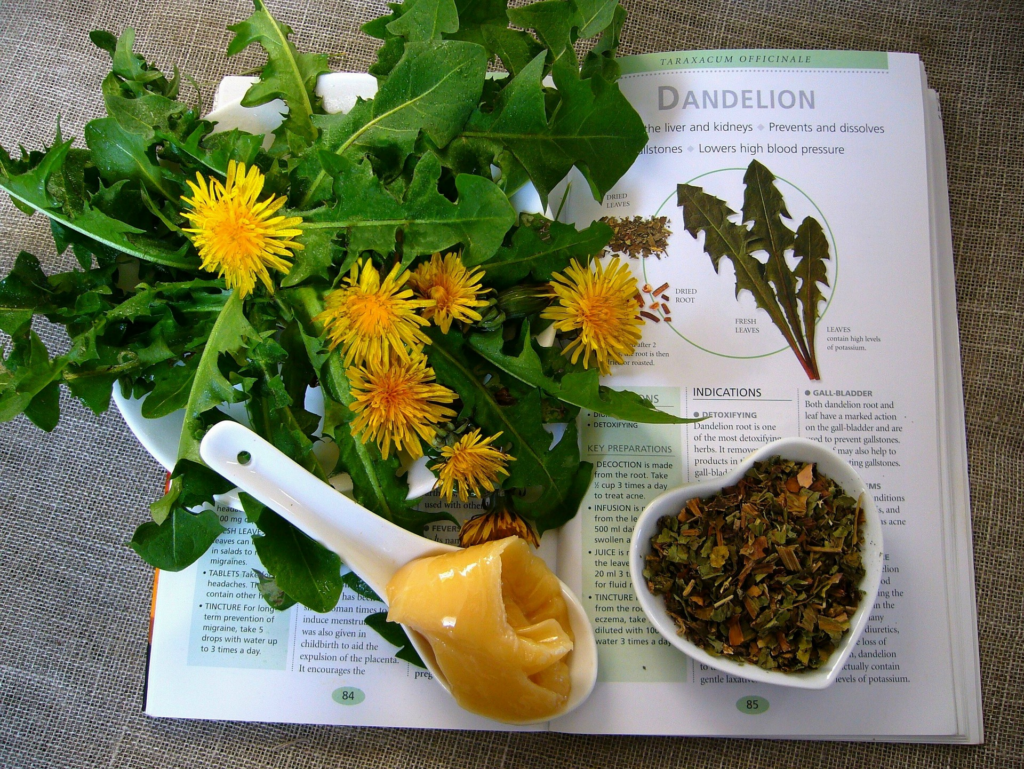Interesting Facts about Dandelions that You Grow in Your Yard
I really had a question in my mind: why do gardeners prefer to grow dandelions in the garden? When I ask them, they don’t know the main reason. But I don’t want to grow them just because they are grown in every garden; I think it’s just foolishness.
According to me, if you are a gardener, you should have deep knowledge about the plants that you are growing to know whether they are harmful to grow or not.
I really don’t want you to repeat the same mistake, so here I have written some facts about dandelions which will help you decide whether to grow them in your garden or not. So without wasting your time, let’s learn together.
Quick takeaways:
- Dandelion is a flowering plant that belongs to the Asteraceae family.
- It consists of several fun and interesting facts which you can use in several aspects.
- The botanical name of the Dandelion is Taraxacum officinale which is drived from Greek words that refer to medicinal characteristics.
- the common name Dandelion is derived from the French phrase ‘dents de lion’ that means lion tooth.
- The plant leaf shape does resemble like a lion’s tooth.
- There are different names given to Dandelion in different regions such as cankerwort, wild endive, pissenlit, yellow gowan, puffball, blowball, and more.
- They are available in around 30 pieces throughout the world.
- It does consist of different habitats such as adequate sunlight, like meadows, forest edges, grasslands, lawns, and gardens.
Dandelion History:
Dandelions Are actually a vital element used in traditional Chinese medicine since thousands of years ago. they are native to the Mediterranean and are also known well by ancient Egyptian Romans and Greeks.
They used to Use the leaves and roots of the plant for medicinal as a tonic for removing toxins from the bloodstream and will serve as a mild diuretic that helps in improving the relative system function.
In the past, the ancient physicians were not aware of the vitamin and nutrition deficiencies of the plant but they found it very beneficial in many problems such as fever toothaches constipation anemia, arthritis, diabetes, gall bladder problems, heartburn, skin irritations, liver, stomach and kidney disorders.
It was discovered by modern herbalists that growing dandelions are actually enriched with vitamins A, E, and C including some minerals like iron zinc, and calcium. Here the beauty of the plant was also appreciated which you can also use for making dye such as giving the item pale yellow dye from the yellow dandelion flower and a purplish hue from the inner ribs of dandelion leaves.
According to the Botanists, there are several species which was originally from North America but according to the historians, the Europeans had introduced the plant with two most famous pieces such as common dandelion (Taraxacum officinale) and red-seeded dandelion (Taraxacum erythrospermum) with their medicinal and nutritional benefits.

Interesting Facts about Dandelions:
Highly nutritious:
- Taling about dandelions which are highly nutritious plants from root to flower containing vitamins minerals and fibers.
- You can eat them by cooking or Raw which will be a good source of vitamins A, C and K.
- It also contains vitamin E, folate, and some amount of vitamin B.
- They do provide several minerals like iron calcium magnesium and potassium.
- The roots of Dandelion are rich in carbohydrate inulin which is a type of soluble fiber that you will find in plants That helps in the growth and maintenance of healthy gut bacteria used in the digestive tract.
- When you try the roots of the plant which you can use to make tea and also eat them whole like a root vegetable

Contains potent antioxidants:
- Dandelion has potent antioxidants that have many medicinal properties meaning that antioxidants a compounds that help to neutralize free radicals molecules which are the product of normal metabolism that can result in chronic disease risk when the level of antioxidants gets too high in the body so maintaining antioxidant is crucial for overall health.
- It does contain a high level of antioxidant beta carotene that helps to protect against cell damage and oxidative stress.
- The antioxidants called polyphenols will be mainly found in flowers but slowly they occur in the roots leaves, and stems.

May help fight inflammation:
- The Dandelion does help in reducing inflammation because of the presence of polyphenols.
- Inflammation is referred to as a natural immune system response to an injury or infection but long-term inflammation does damage the body tissues and DNA.
- According to some test-tube studies, Dandelion helps to reduce the markers of inflammation in cells.
- The tincture Dandelion is made to help in reducing oxidative stress and have a cardio-productive effect.
May aid in blood sugar management:
- The dandelions have active compounds such as Chicoric and chlorogenic acid which help in decreasing the blood sugar level.
- The research done on animal studies says that the compound will help in improving the secretion of insulin which is a hormone that regulates the blood sugar level and helps in absorbing glucose such as sugar from the muscles which helps in improving the sensitivity and reducing the blood sugar level.
- The acid also limits the digestion of starchy, high-carb foods which results in the ability to lower the blood sugar level.

May reduce cholesterol and triglyceride levels:
- There are some compounds present in dandelion that decrease the triglyceride and cholesterol levels that lead to heart disease.
- There are some polyphenols in dandelion like flavonoids and hydroxycinnamic acid that have the properties of cholesterol and triglyceride-lowering.
- Some are saying, that dandelions do have cardio-productive effects such as lowering cholesterol levels.
- However, the research is only done on test tubes and animal studies there is a need to be done on humans also.

May lower blood pressure:
- There are some things that dandelions are able to reduce blood pressure.
- Western medicine uses dandelion to get rid of the excess fluid which results in degrees of blood pressure level.
- The dandelion is an effective diuretic on one older man in which they were involved around 17 people.
- It also contains potassium which is a mineral that helps to decrease the blood pressure of patients who have elevated levels so we can say that the plant indirectly affects blood pressure because of the present of potassium content in it.
- So you can use the dandelion as a potassium-rich food source for maintaining a healthy diet.

May promote liver health:
- Some animal studies suggest that the dandelion is able to protect itself from liver damage and diseases.
- The root of the deadline plant helps prevent liver damage in rats having induced liver failure according to the experiment.
- There are searches showing that the dandelion does reduce the excess fat stored in the liver and helps us from oxidative stress.
- Human research is still needed.

May aid weight loss:
- There are also some researches saying that the dandelion and the compound do help in controlling weight.
- They have the ability to improve carbohydrate metabolism which results in introducing fat absorption and that leads to weight loss, but this theory has not yet been scientifically proven.
- The research done on a rat says that the Dandelion is used to extract weight management aid by reducing the fat absorption.
- Another study done on rats says, chlorogenic acid and a compound available in Dandelion reduces body weight, decreases fat accumulation, and changes. The level of specific protein is involved in weight control.

May have anticancer effects:
- There is research saying that the dandelion does have the potential to prevent the growth of cancer cells in different organ systems.
- After doing research on rats for four weeks, it was concluded that the dandelion route does extract the potential to suppress the growth and spreading of breast cancer cells.
- Using the dandelion route, does slow down the growth of the cancer cells in the liver, prostate, and stomach tissue.
May support healthy digestion and treat constipation:
- It is used in traditional medicine which helps the patient to treat constipation and improve the digestive health.
- There is research done on older animals that makes them find that it increases the rate of stomach contraction and stomach emptying such as rats.
- The roots of the plant are a resource of prebiotic fiber inulin which helps in reducing constipation and will help in promoting the moment of food in the entire digestive system.
- If you cook more than 3 grams of fiber per cup, then the green dandelion may bump the fiber intake.
- Fiber is used to support the bowel and to protect it from various digestive conditions like hemorrhoids and diverticulitis.

May boost immune health:
- The dandelion does consist of anti-micro and anti-viral properties which help the body obligator fight against any infection.
- There are several tests done and result in if attracted significantly it reduces the virus’s ability to replicate.
- There are some active compounds in dandelions that help to fight against harmful bacteria and fungi.
- The research is mainly done on animals. So on humans, The research is still going on.

May be a useful skin care treatment:
- The dandelion is also used to put it against skin damage which is caused by sunlight, aging, and acne.
- There is research saying, a fermented broth of the dandelion will prevent skin damage. If you apply it immediately after exposure to UV radiation that comes from the sunlight.
- The root of the plant is to increase a new skin cell which helps the skin to look better after you get aged.
- It may also reduce skin inflammation and irritation by increasing hydration and collagen production.
- Using dandelion is useful in preventing and treating any type of acne skin health problem.
May support healthy bones:
- There has been very little research done on the conducting effect of bone health but there are some nutrients that contribute to maintaining bones.
- The Dandelion green is considered a good source of calcium and vitamin K which have an important role in maintaining bone health.
- There is also some research that says that increasing the intake of vitamin K-rich leafy green vegetables will help in lowering the blood level of osteocalcin which is the protein found in the bones.
- Eating more leafy greens of dandelion will help you to prevent bone loss.
- There is a fiber found in the root of the dandelion called insulin which also helps to maintain healthy bone by improving digestion and gut health.
- There is also research done on dandelion saying that the antioxidants present in the plant and other greens do play a role in bone health which helps in protecting them from bone loss by decreasing oxidative stress.

Dosage and supplement forms:
There are people who eat dandelion leaves, stems, and flowers as available in their natural state but you can also cook and eat them raw. Also, you can dry the root grounds and use them as a tea or coffee substitute. They are also available to be used as a supplement in capsule, extract, or tincture form.
Although there is no clear idea of dosage guidelines but some data are suggesting the following dosages to be used for different forms of dandelion:
- Fresh leaves: 4–10 grams daily
- Dried leaves: 4–10 grams daily
- Leaf tincture: 0.4–1 teaspoon (2–5 mL) three times per day
- Fresh leaf juice: 1 teaspoon (5 mL) twice daily
- Fluid extract: 1–2 teaspoons (5–10 mL) daily
- Fresh roots: 2–8 grams daily
- Dried powder: 250–1,000 mg four times per day
Risks and side effects:
The following are some risks and side effects for growing Dandelion in your garden:
- Although Dandelion plants come with low toxicity and are safe for most people which makes it to get consumed as food but need to note that research is still going on to make Dandelion risk-free.
- If you consume them you may suffer from allergic reactions that are related to plants such as ragweed or you can also kill the dandelions in that situation.
- You need to be concerned with dermatitis which could mainly cause people to have sensitive skin.
- The dandelion of the plant interacts with medications that include antibiotics, anticoagulants, and blood sugar drugs.
- In case, you are already taking any prescription medications then consult with a healthcare professional before you use dandelion.
Conclusion:
After understanding about facts based on dandelions you can decide how beneficial they are for you to grow based on your health problem but with this, I have also explained the risks and side effects of growing them.


